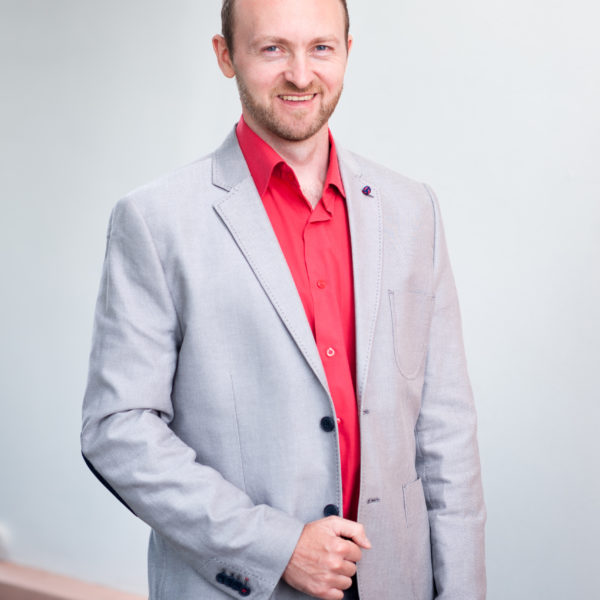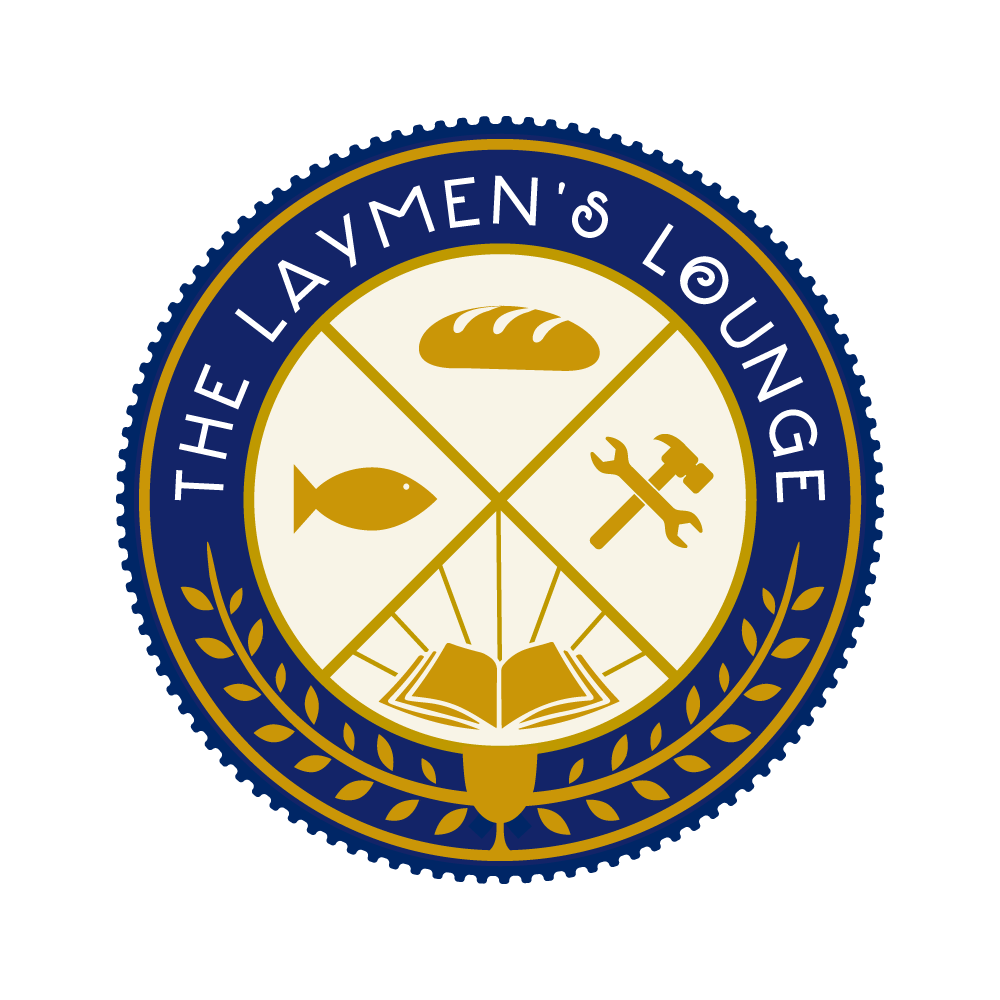Eduard Borysov born in Artyomovsk, Ukraine (in 2018 the town was renamed Bakhmut due to decommunization process in Ukraine), is a professor at Kyiv Theological Seminary, Ukraine. His favorite movie is The Kingdom of Heaven, his favorite smell is coffee and chocolate, his first job was helping his dad in construction, and when not engaged in academic rigor he enjoys visiting friends and watching movies.
The Father, the Son, the Spirit and You
Loading...
Can you share with us some insights into the Christian life and life of the Church in Ukraine that might be blindspots to those of us in the West?
The Evangelical Christians in the Slavic world, particularly in Ukraine, are a religious minority. The Ukrainian Eastern Orthodox Church is the largest Christian Church. This has some impact on the way we view Christian life and beliefs. Eastern Orthodox believers pay greater attention to communal life and beliefs rather than individual salvation: me, my Bible, my relationship with Jesus type of thinking. There is something to learn from them in this regard. Instead of thinking about the self as an isolated self-conscious individual, it is more biblical to think about the self as a person that lives in community. We are defined by our relationships with other persons, as well as the Father, Son and Holy Spirit. As an introvert, I have a tendency to avoid being around people, but as a Christian I realize the need for a community of believers to worship together, to help each other and to be a witness to the people around.
Ukraine experiences military aggression and on-going conflict. Many families, including Christians, were dislocated from their homes and churches. Part of my family is still living in close proximity to the battle zone. Some Christians struggle to comprehend why God would allow such things to happen to his children. Others see it as an opportunity to help those in need, start a new church in a new town and just be the light. The most important, however, is that we still have the freedom to worship our Lord together despite the financial difficulties, loses and everyday challenges. You can’t take these things for granted.
Growing up I thought “salvation” just meant having my sins forgiven. As I grew in my knowledge of the Word I saw that salvation is much more than forgiveness of sin. Can you explain what happens to us when we are saved?
Biblical authors, like the apostle Paul, talk about salvation in three ways.
1) We were saved, justified, reconciled with God, washed, regenerated, clothed in Christ and so on (Rom. 3:24; 5:1, 10; 1 Cor. 6:11, etc.). We can say that salvation in this regard is a past event, change of our status before God, on the basis of which we live our daily life.
2) However, he would also talk about salvation in the present tense. We are being saved (1 Cor. 1:18; 2 Cor. 2:15), Jesus delivers us from the coming wrath (1 Thess. 1:10) and we are called to work out our salvation (Phil. 2:12). This continuous process can be called lifelong sanctification.
3) Finally, salvation is something that we await in the future. A believer can lose her rewords but still will be saved (1 Cor. 3:15). We were saved in hope, which points to future completion (Rom 8:24). Who endures to the end will be saved, says Jesus (Matt. 10:22; 24:13). We can call this future aspect of salvation glorification with Christ (Rom 8:17).
Forgiveness of sins represents a negative aspect of salvation. By faith in Christ, we were released from the power of sin, guilt, death, and Satan. This is only one side. We were not just freed from an evil master. We were freed by the Lord, for the Lord. We have a new, gracious Master, whom we serve. Paul admonishes Romans to consider themselves dead to sin and unrighteousness and also live and act for righteousness (Rom. 6). God produces in us desires to do good and the Holy Spirit enables us to do good (Phil. 2:12-13; Rom. 8:1-16). Faith without works is dead, says James 2:20. So, as John Calvin said, we are not saved by works, but not without works.
The trinity has so much to teach us about the relationship of the Father and the Son. Please explain the Father’s feelings for the Son and what this tells us about our own relationship with Him, and why their relationship matters to us?
The world we live in, and even our own existence, is an outflow of love that exists within the Trinity. We were created for the Son and through the Son (Col. 1:16). The same could be said about the Father (1 Cor. 8:6). Thus, the identities of God the Father, Son and Spirit are mutually connected. From the beginning, the Father was the one who had the Son and the Spirit. The Son is the one who has the Father, who sent him into the world and raised him from the dead (Rom 4:24). The Spirit is the one, who comes from the Father through the Son and was sent to complete the will of the Father by applying the work of the Son to people (Gal. 4:6). So, the identity of each divine person is defined by his relationships with the other divine person. This is what personhood means. As the Metropolitan of Pergamon, John Zizioulas, said, we are beings who exist as communion. We, as human persons, are defined by our relationships with the divine and other human persons. The love of divine persons reaches out to us and when we enter into these relationships and share the love of God we need to reach out to others with this love.
What is Triadosis? In your book, Triadosis: Union with the Triune God, you explain beautifully how union with Christ also unites us with Trinity. Can you give a simple and practical summary of what this means?
Triadosis is an idea that unites two doctrines: the ancient doctrine of deification (Greek – theosis) and the doctrine of the Trinity. According to church fathers, the church leaders of the first seven centuries or so, believers are called to enter into union with Christ and through that share divine life and moral qualities by grace as much as is possible for human beings. These early theologians would refer to texts like Psalm 82:6 “I said, you are gods,” which Jesus quoted in John 10:34, and 2 Peter 1:4 “so that through these you may become sharers of the divine nature.” The church fathers thought that human beings, from their creation, were called to become like God (since they were created in the image and likeness of God, Gen. 1:26), and so in Christ, they become gods by grace. People become sons and daughters of God. However, they will never become gods by nature. The only-begotten Son is God by nature. Believers become what Christ is by grace only, while their human identity is not changed or absorbed into God. They are adopted into the divine family, they bear the divine image and they will become immortal with incorruptible bodies (1 Cor. 15:35-49). This is the meaning of deification or theosis. Triadosis brings to theosis the idea of union with the whole Trinity. By uniting to Christ, we unavoidably unite with the Father and the Spirit also, because, as I said earlier, the identity of the Son is indivisibly linked with the Father and the Spirit. In fact, the Son’s goal was to unite us with the Father by means of the Spirit (John 17:21-24; Rom 8:14-17). Hence, believers unite not with God as an abstract being or divine nature but with the tripersonal God, the Trinity, and share the life of the Father through the Son in the Spirit. Believers not only imitate divine qualities and strive to know God. They are not only united to Christ, their redeemer, representative, and prototype. They are not participating in God’s energies that are his names, acts, manifestations. They enter into union with the tripersonal God and share the communion of the Father, Son, and Holy Spirit.
Your book also touches on the love and intimacy the Father and the Son share through the Holy Spirit. Why is this important for us to understand as believers and what are the implications for us?
Christians are the ones who confess their belief in the Holy Trinity. In practice, however, we seldom hear sermons, rarely discuss or rely on the power of the Holy Spirit in everyday life. Hence, the Trinity plays only a nominal role for some believers, who in reality become mere monotheists (they believe in God) or at best binitarians (they believe in the Father and Jesus Christ). This is understandable to some extent because Jesus is a historical figure that we could tangibly learn about. The Father is God, the source of all being, whom Jesus often mentioned. But the Spirit is not a historically tangible being. For a human mind, it is difficult to fathom a spiritual person that is often associated with God’s power. We need to realize that the Spirit is not an impersonal entity or some sort of omnipresent divine force. He is a part of Godhead, equally personal and equally divine like Father and Son. He is the one who is actively involved in our salvation and sanctification. His task on earth is pointing to Jesus, but it by no means makes him less divine. Christians cannot be called the children of God if they don’t have the Spirit. They limit themselves by not relying on the person of the Spirit in everyday life for victory in temptations (Rom 8:9, 26-27). How can someone call himself or herself a believer if he or she is not living in the Spirit (Rom. 8:4-11)?
Spiritual blessings in the book of Ephesians seem to be from the Father and through the Son. Can believers use this as a general model for understanding how the Trinity functions?
Theologians often talk about the Trinity in two ways. The first way has to do with the internal relationships of the Trinity, wherein all the divine persons are equal in nature and glory. The Father is viewed as the one source, from whom everything exists. The Father is also the source of the Son’s and Spirit’s divinity. Without the idea of one source in God, we would have three equal sources and thus three gods. But it doesn’t mean that the Son and the Spirit originated sometime in the past. The Father as the source of the Son and the Spirit is not a chronological statement, it is a statement about the origin of their divine nature. Hence, there is no hierarchy in God. Father, Son, and Spirit are equally divine. Theologians call this way of talking about God the immanent Trinity.
The second way has to do with how the Trinity relates to the created world. All three persons were involved in creation (Gen. 1:1-2; Acts 14:15; Col. 1:16; Heb. 1:2). However they have different roles in respect to salvation: the Father sends the Son to save people, the Son submits to the Father and fulfills his will, the Spirit testifies to the Son and leads people to Christ. This temporal submission of the Son and the Spirit to the Father does not reflect who they are in God, but what their role is in respect to the world. In theology, this is usually called the economic Trinity. In God’s plan of salvation, we see the economic Trinity in action. The Father is the initiator of salvation, which he accomplishes through the Son by the Holy Spirit.
Peter says we are participants in the divine nature (2 Peter 1:4). How is sharing in God’s own nature relevant to us as we go about our daily lives?
As I pointed out earlier, to share the divine nature does not mean we become a part of the Trinity by nature – that would mean polytheism. When we enter in union with the Trinity we share the eternal, incorruptible and holy life of God. Our life should reflect the holy and loving life of the Trinity. Being the image-bearers of Christ, we become like God by grace, we are adopted children of God, who should reflect familial features like love, care, justice, peace, joy and so forth. In other words, we manifest divine personal qualities.
What is the “Gospel” and what practical implications does the Gospel make in my everyday life?
The gospel is essentially Jesus Christ, his mission and kingdom. If we focus only on justification by faith and escape from hell we are missing a big part of the gospel. The good news is not about my salvation, it is about the divine messianic King, who became a sacrifice for me to bring me into his kingdom. In this way, the gospel relates to the whole of life, present and future, not only to the past. Paul is ready to preach the gospel to the Roman believers (Rom. 1:15). Did he not believe they were already disciples? I think Paul’s understanding of the gospel is much broader than ours. The gospel is applicable to our daily life: we need forgiveness every day, we need to submit to our Lord and his will every day, we need to pursue his goals in this world every day. Scot McKnight’s book The King Jesus Gospel: The Original Good News Revisited speaks well into this.
What is “sin” and what is so terrible about it when I do sin? And what is my motivation to not sin?
The root of sin is usurping God’s prerogative to be God in our life, that is to define for us what is good and what is bad. As sinners, we want to control and make decisions for what would be good, beneficial and pleasurable for me now. Often these decisions are driven by flesh, rather than the Spirit, as Paul says in Romans 8. Satan deceives us that sin brings pleasure, benefit, and success. God’s standards and commandments look constraining to our misguided hearts, while in reality they are given to make our life holistic, productive, and joyful in communion with others. When apostles reminded believers about their holy conduct they did not simply impose commands on them, they always reminded them who they are in Christ, how God views them, what place they have in God’s family. We need to study and remind ourselves about these truths to overcome sin. The more we know the Trinity, the more we become like God. This is why apostles often prayed that believers grow in the knowledge of God and Christ (Phil. 1:9; Col. 1:10; 2 Pet. 1:2, 8; 3:18).
What is God’s end goal for this world, all humans of this world, and me personally? Where is He taking it and what does it look like for me to be a part of that goal, and how can I have a role and purpose in that goal, and find meaning, and value, and my joy in that goal?
God’s ultimate goal is the restoration of all the created world in unity and harmony with him. We often talk about personal relationships with God, but that is only a part of God’s Grand Story. Adam and Eve were called to be stewards of his good creation, to take care and expand the garden. This includes not only good relationships with the Creator but with each other and the wise use of the world. After the fall, the whole creation is groaning and waiting for the day of final restoration (Rom. 8:20-22). It means that we are God’s agents of restoration and peace, and should respect the gifts of creation, not misuse them. We serve the Lord in many ways, capacities, and professions, which are not limited to the church. Hence, every day at work there is time and opportunity to be a steward of God’s resources, talents and energy for the benefit of society and his glory. A well-done job at a store, school, market and so forth is as honorable as a well-preached sermon. My goal as a Bible teacher is to impact students’ thinking, giving them tools to understand God’s Word better, to evaluate their life situations, church ministries and make right decisions about where and how things need to be improved.
How can I, as a Christian who believes the Gospel and affirms orthodoxy, be compelled to genuinely desire God and the kingdom of God enough to become a true disciple, one who is willing to consider all things loss in comparison with knowing and loving Jesus?
We may think that by doing Christian disciplines of reading the Bible, prayer, fasting, worshipping at a church, we become spiritually mature. But with all respects to these honorable activities, it is the Holy Spirit who changes our hearts and minds. Does this mean we have to leave all Christian practices? Not at all. But we need to understand that they are simply means to abide in Christ and to walk in the paths where the Spirit walks, where transformation happens. There is definitely a transformation of mind involved (Rom. 12:1-2), and God is more concerned about what kind of person I am and less what kind of deeds I do. Faith walks hand in hand with works (Jam. 2:26). So, we grow as we do and we do as we grow. We should not expect to reach maturity without tests and opportunities to apply what we have learned. We all need good examples of mature spiritual believers. Pray and find one around you.
As a Christian, at the end of a long day (when I have done what I ought not to have done – and not done what I ought to have done) what are God’s thoughts of me when I lay down my head at night and fall asleep?
As sons and daughters of the Father, our identity is defined by who we are in Christ. Apostles often address immature churches as saints, beloved, chosen and holy. Our relationships with the Trinity define who we are, not good or bad deeds. Even though our behavior does not define us, it demonstrates who we are, and to whom we belong. Therefore, Paul reminded Romans that grace is not the reason to indulge in sin (Rom 6:1-2). At times our day finishes with groanings, but even in that, we are not alone, because the Spirit is groaning with us in our prayers. The bottom line is whether I am in Christ or I am still in Adam, the old man.
For you personally, what has been the most compelling or powerful aspect of the story of the Bible that you delight in, has come to you fresh, and resulted in you loving God more and being excited to be a part of God’s story?
I am always astonished by the fact that God accomplishes his plan, not because of people, but despite them. Just one example of this is Gideon. He had the Angel of the Lord appearing to him, calling him to a mission, promising to be with him, giving him the supernatural signs of confirmation and he was still struggling to believe it (Judges 7-8). Similar calling and excuses not to follow appear in the cases of Moses, Jeremiah, Jonah, and others. Nonetheless, the Sovereign Lord reaches his goals, not because of our competence, strength or talent, but despite our fears, hesitations, laziness, and anxieties.
For those who read this interview and get pricked of mind and heart; what can I do today, right now at this very moment (and beyond), that can result in the story of the Bible take root in my own heart and shaping me as it has you?
Thank the Father for the privilege to be a part of his Story, rely on Jesus Christ for your salvation and transformation, and be open for the work of the Holy Spirit, who will finish the good work that has started in you.
SHARE THIS ARTICLE
Loading...
Loading...
Subscribe
0 Comments
Inline Feedbacks
View all comments
Read more in these categories
Loading...
Today we are joined by Stephen Brett Eccher to discuss the firebrand of fidelity that is Ulrich Zwingli in connection with Eccher’s new book “Zwingli the Pastor: A Life in Conflict” from Lexham Press.
Biblical Theology is a reference book covering every book in the Bible, but it can also be read devotionally, as I did – in fact, it took me nine months to read. As C. S. Lewis says in his wonderful introduction to Athanasius' On The Incarnation, doctrinal books are often “more helpful...
This Earthly Life Matters
Was Jesus merely an “emergency measure”? Did Kuyper take the creation and culture far enough? Is the goal of life to “get saved” or is it to get saved unto the end that God intended all along? Do we overemphasize Jesus at the expense of the Trinity? All this, and...



